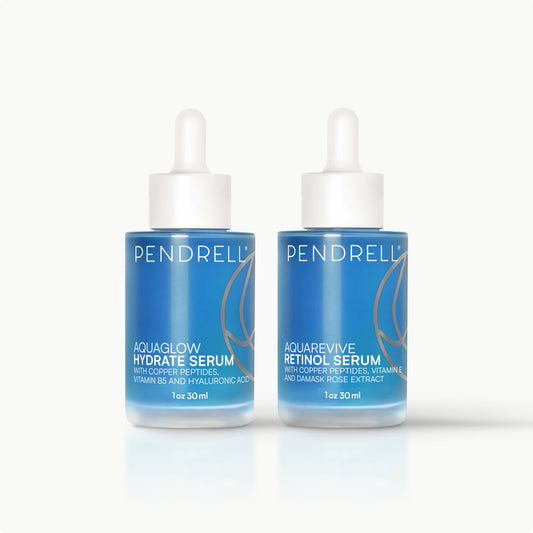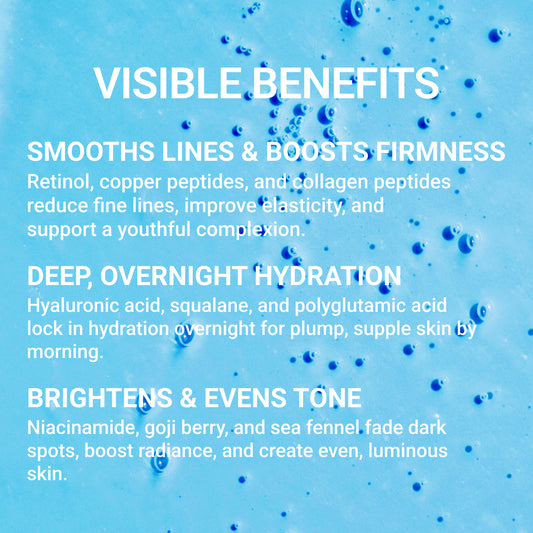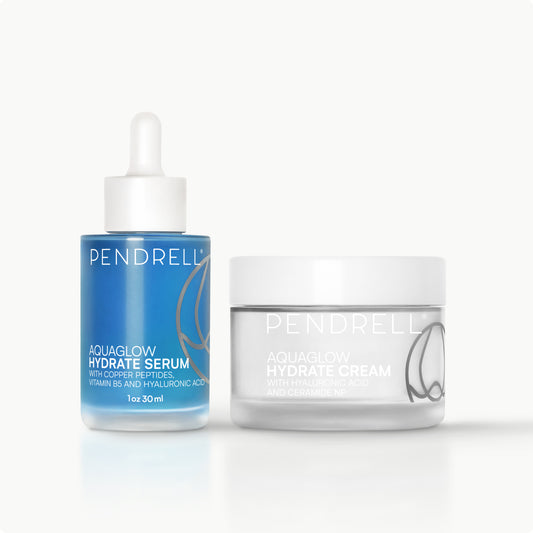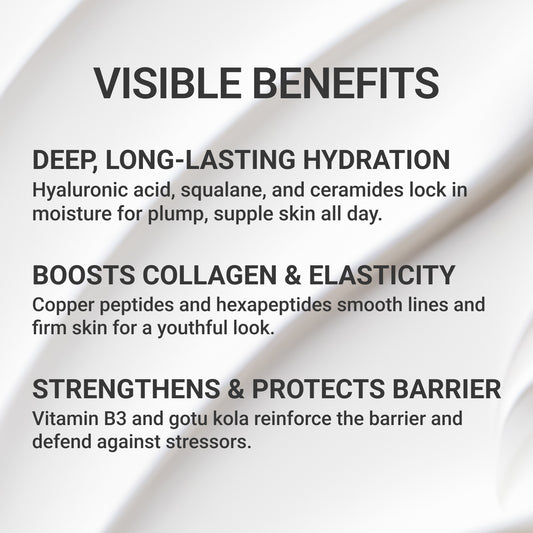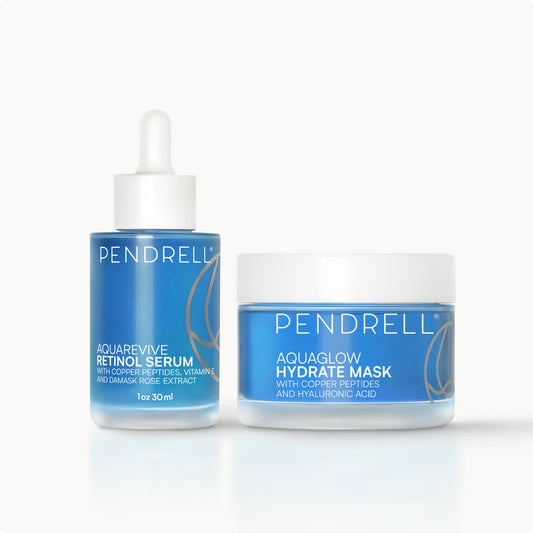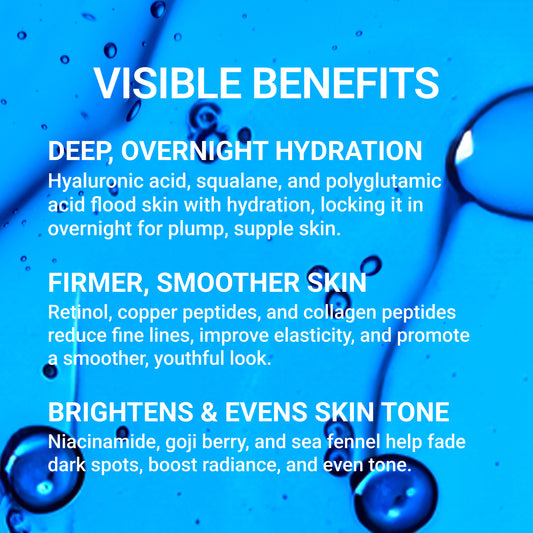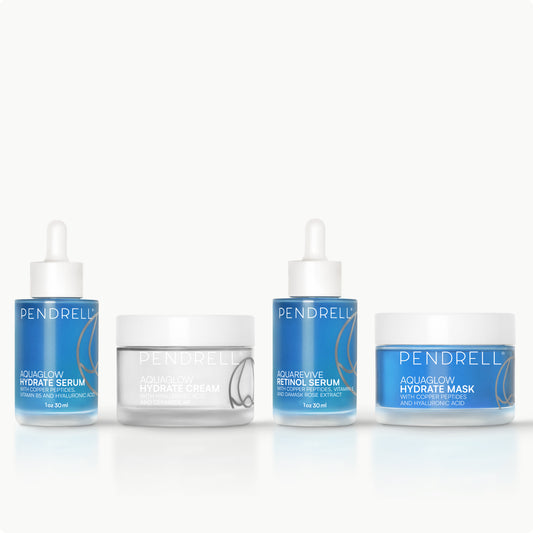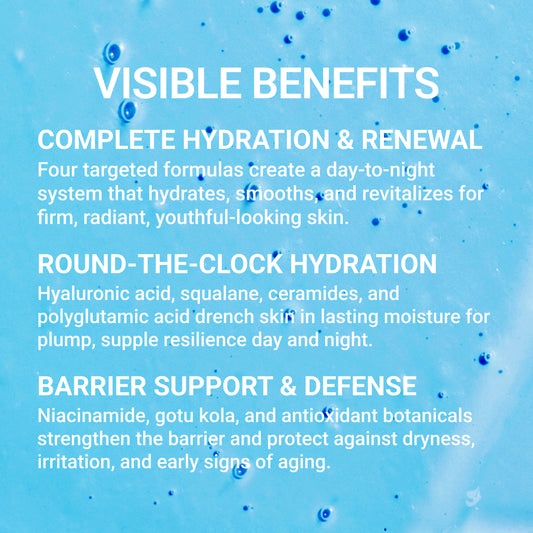

Hydrated Skin Myths Debunked: What Really Works for Glowing Skin
When it comes to skincare, “hydration” is one of the most misunderstood topics. Between marketing claims, viral trends, and conflicting advice, it’s no wonder so many people are confused about what actually keeps skin hydrated. The truth is: real hydration goes beyond slathering on heavy creams or chugging endless water bottles.
In this guide, we’ll debunk common myths, explain the science of skin hydration, and give you clear, dermatologist-recommended strategies for achieving hydrated, glowing skin every day.
Myth #1: More Products Mean More Hydration
It’s tempting to layer on every serum, cream, and oil in hopes of achieving glass skin. But when it comes to hydration, more isn’t always better.
If even one product in your routine contains pore-clogging ingredients, your skin barrier can’t properly absorb the humectants and emollients that deliver moisture. Overloaded pores become blocked and inflamed, reducing your skin’s ability to hold water where it matters most.
Better strategy: keep your routine simple and intentional. Choose products labeled non-comedogenic (non pore-clogging), and focus on high-quality hydrators like hyaluronic acid, copper peptides, and ceramides. Fewer, smarter products often deliver deeper and longer-lasting hydration.
Myth #2: Moisturizers Are the Only Way to Hydrate Skin
Moisturizers are essential, but they mainly target the outermost layer of skin (the stratum corneum). True hydration requires support across all three layers of the skin:
-
Epidermis – surface protection against water loss
-
Dermis – collagen, elastin, and hydration reservoirs
-
Hypodermis – fatty layer that cushions and insulates
This is why serums play such a critical role. Their lightweight formulas penetrate deeper, delivering water-binding molecules and peptides to layers moisturizers can’t always reach.
Example: HYDRATE SERUM is formulated with copper peptides (to boost collagen and elastin) and hyaluronic acid (to bind and hold up to 1,000x its weight in water). Together, these actives provide multi-layer hydration and antioxidant protection, improving elasticity and reducing fine lines. Pairing a serum under your moisturizer ensures hydration is both deep and sealed in.
Myth #3: You Can’t Drink Too Much Water
Yes, hydration from within matters—but moderation is key. Drinking excessive amounts of water can lead to hyponatremia (water toxicity), a serious condition where sodium levels in the blood become dangerously low.
While rare, it’s more common in individuals with kidney or heart issues. Symptoms can include nausea, confusion, and fatigue.
Rule of thumb: Instead of chasing gallons, calculate your daily water target by dividing your body weight by three. That number is your recommended ounces of water per day. For example, a 150-lb person should aim for ~50 ounces.
Myth #4: Everyone Needs Eight Glasses a Day
The “8 glasses a day” advice is outdated and overly generalized. Hydration is highly personal and influenced by:
-
Age – skin loses natural moisturizing factors as we grow older.
-
Activity level – athletes or active individuals require more fluid replacement.
-
Climate – dry, cold, or high-altitude environments accelerate water loss.
-
Diet & medications – caffeine, alcohol, or certain prescriptions can increase dehydration risk.
The takeaway: listen to your body. If your lips are dry, your skin feels tight, or your energy dips, those are signs you may need more fluids.
The Role of Lifestyle in Skin Hydration
Hydration isn’t only about skincare or water intake. Other lifestyle factors dramatically affect how well your skin retains moisture:
-
Diet: foods rich in omega-3 fatty acids (salmon, flaxseeds) and antioxidants (berries, leafy greens) help strengthen the skin barrier.
-
Sleep: during deep rest, the skin enters repair mode, boosting its ability to retain water.
-
Stress: elevated cortisol weakens the barrier function, leading to dryness and inflammation.
Pair smart skincare with balanced lifestyle habits for results that truly last.
Key Takeaways for Hydrated, Glowing Skin
-
Simplify your routine and avoid pore-clogging ingredients.
-
Use a hydrating serum (like HYDRATE SERUM) before moisturizer to target deeper layers.
-
Follow water intake guidelines suited to your body weight and activity.
-
Factor in age, lifestyle, and environment when assessing hydration needs.
Hydration is more than a buzzword—it’s the foundation of healthy, glowing skin. By understanding the science and cutting through myths, you can create a routine that actually works for your skin, not against it.

